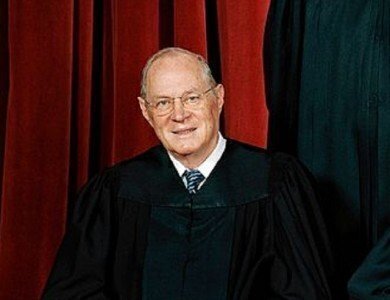Lyle Denniston, the National Constitution Center’s adviser on constitutional literacy, looks at why lawyers in Idaho want the Supreme Court to do something it has never done yet, in years of ruling on gay rights cases.
“Although this case bears some similarity to the marriage cases in which this Court denied review earlier this week, it is fundamentally different….This case merits this Court’s review independent of the marriage context in which it arises.”
– Excerpt from a legal document filed Wednesday in the Supreme Court by lawyers for the state of Idaho, leading to an order by Justice Anthony M. Kennedy temporarily barring same-sex marriages in Idaho while Kennedy or the full court considers what to do further on this request.
WE CHECKED THE CONSTITUTION, AND…
Much of the Supreme Court’s highest profile actions come in full-scale constitutional rulings, issued in lengthy opinions that stir up major headlines and excited broadcasts. But the court can also act in quieter ways, and still make things happen with constitutional consequences. At the start of this week, it issued seven simple, unexplained orders that meant it was bypassing – for now, at least – the historic controversy over same-sex marriage.
As the week moved along, and lower courts continued to be busy with rulings on that controversy, the Supreme Court seemed to be idling on the sidelines. All of a sudden, Justice Anthony M. Kennedy issued a brief order, on the way to the bench for a hearing on Wednesday morning. His order immediately raised the question: is the court going to get involved, after all?
The fact is that the Kennedy order does put the court back into the midst of the debate, at least for a few days. By week’s end, it may be clearer just what is going on and what may happen next among the Justices.
The state of Idaho, where government officials remain strongly opposed to same-sex marriage, had just lost its case in a federal appeals court. The state’s ban on same-sex marriages was unconstitutional, according to the U.S. Court of Appeals based in San Francisco. With the Supreme Court having just opted two days earlier to stay clear of the controversy, Idaho officials seemed to have few options left.
But in the middle of the night, the state’s lawyers filed last-minute pleas to try to stop that appeals court decision – and to stop county clerks from issuing marriage licenses the next morning. And, not long after sunrise in the East, they had asked Justice Kennedy to put the appeals court ruling on hold until they had a chance to test it in further appeals.
As Kennedy got ready to put on his robe for the day’s hearings, he acted. He ordered the appeals court decision temporarily postponed, to give himself – and perhaps his eight colleagues – time to think about it further. All the papers that lawyers will file in response to that order should be sent in by Thursday night, in time for Kennedy to act quickly, or to share it with the other Justices so they could act by the weekend.
In Idaho, broadcasters puzzled over what to say to their listeners. What did it mean that the Supreme Court, so recently taking a pass on same-sex marriage, seemed to be taking control for itself? Were the Justices now going to rule on same-sex marriage, after all?
Justice Kennedy did not explain his order, so its meaning could only be guessed at. At a minimum, he was just seeking more time. But, if the Idaho case was no different from those from five other states that the court has just turned aside, why would he or the court step into this belated fight over Idaho’s ban?
It was that question that Idaho’s lawyers had in mind when they asked Kennedy to intervene. As they pursued further appeals, they said, they would not be asking the court to decide the basic constitutional question of whether states may ban same-sex marriages and whether they may refuse to recognize such marriages already performed in other states.
Instead, they want the court to do something it has never done yet, in years of ruling on gay rights cases. That is, they plan to ask the court to spell out the constitutional test that is to be used to judge when a law discriminates against gays, lesbians and transgender people on the basis of their sexual orientation – an issue that goes far beyond same-sex marriage.
They complained to Justice Kennedy that, in striking down Utah’s ban, the appeals court in San Francisco had used too rigorous a test. The Supreme Court, they argued, should overrule that and tell lower courts that they should use a more lenient test – one that, they clearly anticipate, would allow same-sex marriage bans to survive. Once the court had done that, they went on, the Idaho case could go back to the appeals court for a further look.
If Justice Kennedy alone, or he and his colleagues, conclude that the issue is one that they should now take on – that is, if they decide it needs spelling out at this time – then the pace of the campaign to extend same-sex marriage to new states might slow down considerably, until the outcome is known.
Whether or not that happens, the events of the week in the federal courts illustrated, once more, that this constitutional dispute can change with great speed, and leave everyone guessing.








